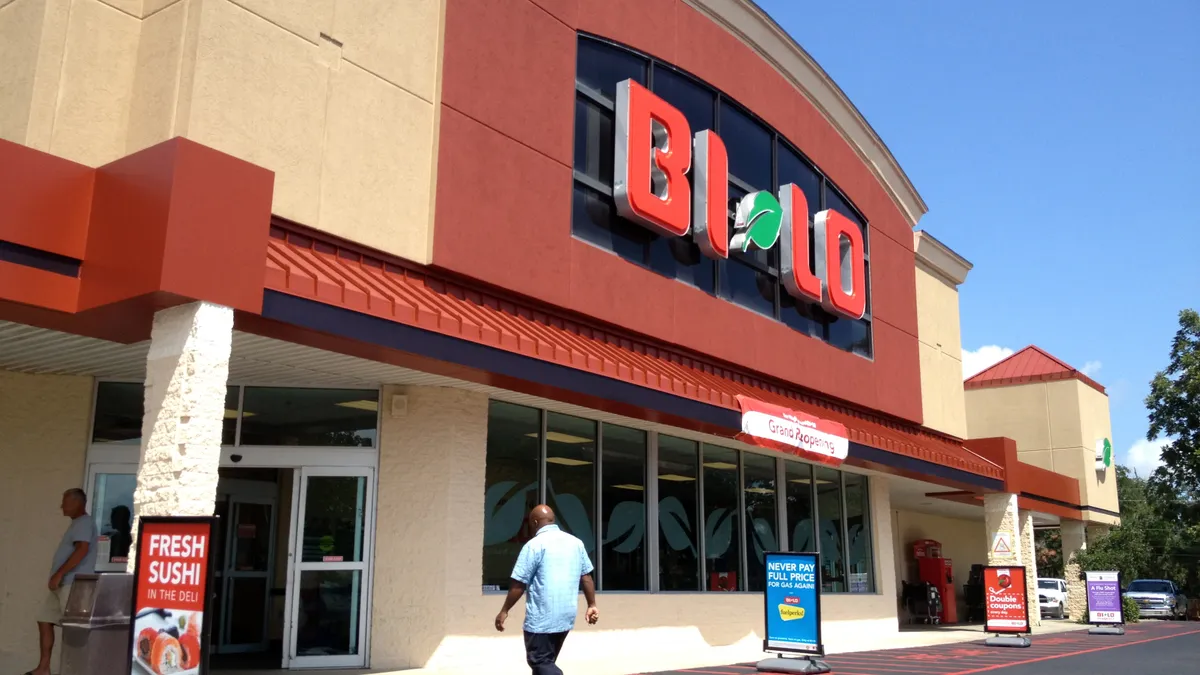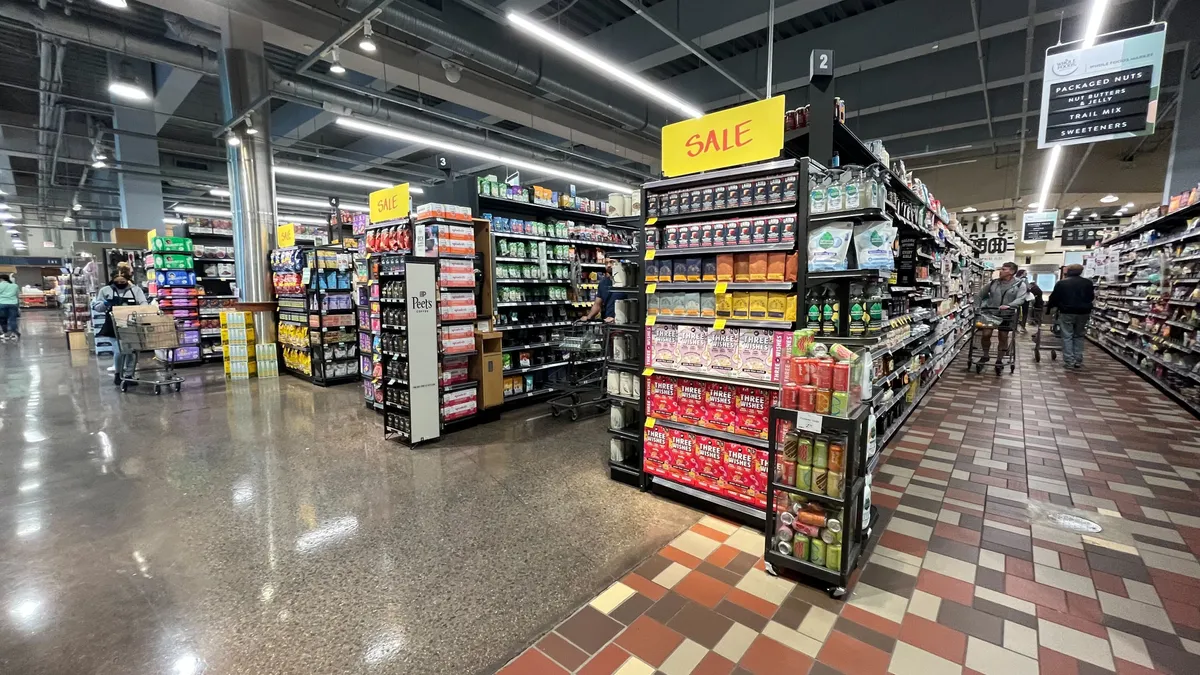Dive Brief:
- Southeastern Grocers is in negotiations with bondholders to refinance around $1 billion in debt, and could enter Chapter 11 bankruptcy to reconfigure its capital structure, according to Winsight Grocery Business.
- The company has $900 million in unsecured notes issued by Southeastern’s holding company, Bi-Lo Holding Finance, due to mature in the next two years. According to a Bloomberg report, the company is considering swapping debt for equity with bondholders, though the grocer is unsure if it will enter bankruptcy in order to do so.
- Moody’s Investors Service, which downgraded Southeastern’s corporate family rating and probability of default, said the grocer’s refinancing risk was significant and called its overall capital structure “unsustainable.” Mickey Chadha, Moody’s vice president, said in a statement that Southeastern’s performance has improved of late, and that the firm expects this to continue.
Dive Insight:
A Bloomberg story last week outlined how Lone Star Capital, the private equity firm that owns Southeastern Grocers, paid itself at least $800 million plus management fees since 2012 by issuing debt to investors. This has been a boon for Lone Star, but has put a stranglehold on Southeastern, whose debt in March was six times greater than its EBITDA, according to Moody’s. Junk-rated companies, according to S&P Global, have about five times debt-to-EBITDA ratio.
Lone Star isn’t the only private equity firm that has profited from managing a poor-performing company. Encouraged by record-low interest rates, firms have found it easy to borrow money, saddle the company with debt, then pay themselves with that debt. As Bloomberg notes: "From the start of 2013, private-equity owners have taken $100 billion in debt-funded payouts, according to data compiled by LCD, a unit of S&P Global Market Intelligence. During the same period, private-equity-owned companies defaulted on $49.2 billion worth of loans, the data show."
Bloomberg noted in its report that Southeastern Grocers has entered into talks with its bondholders on a possible debt-for-equity swap. According to sources interviewed by Winsight Grocery Business and Supermarket News, Chapter 11 is just one possible outcome. In fact, given the company’s need to reconfigure its capital structure before the unsecured debt notes come due, there’s a good chance it will agree to a settlement that involves some combination of cash and equity in exchange for new notes.
Despite its debt woes, sources say Southeastern Grocers is performing well right now. Its Bi-Lo and Winn-Dixie stores are under considerable pressure from chains like Publix and Kroger as well as discounters and Walmart. But the company has implemented efficiency measures, invested in price drops and remodeled stores. It has also focused on converting underperforming stores to either its discount banner, Harveys, or its Hispanic format, Fresco Y Mas.
“They have some very good people at the district manager and merchant level,” Burt Flickinger, managing director with Strategic Resources Group in New York, recently told Food Dive. “The question is capital.”










